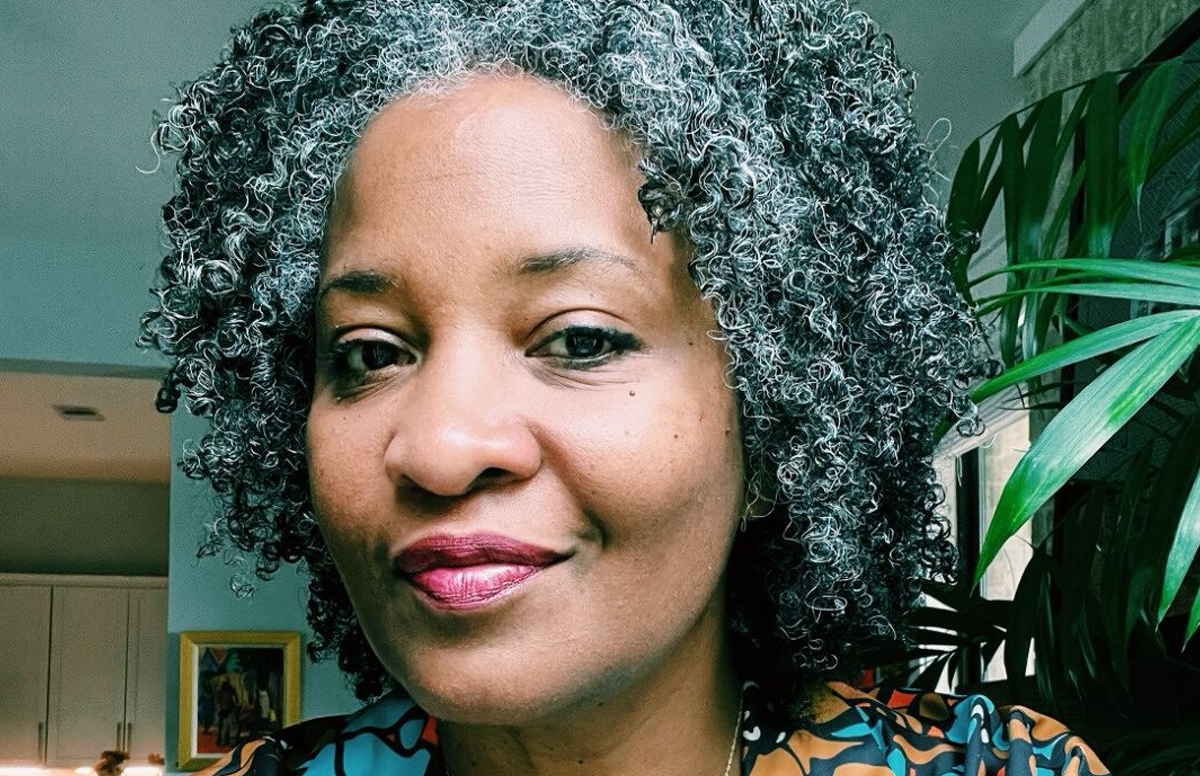Leadership and activism coach Karen Walrond ruminated on joy, community, and activism during a reception sponsored by the LeadingAge Leaders of Color Network at the 2023 LeadingAge Annual Meeting. Here are Walrond’s answers to some of the questions posed during the reception by LeadingAge President & CEO Katie Smith Sloan and leaders of color.
(Note: Walrond’s comments have been edited for space and readability.)
How do you find joy in a world that is so incredibly troubled?
You have to work at it. When you do the kind of work we do—whether that is taking care of people as they get older, being an activist, or being the leader in an organization—you are primed and acculturated to look for problems and try to fix them. That is very, very important work. And we need to do that.
But we also have to pay attention to joy. Otherwise, we will spiral into despair. The world does not need people in despair. Nothing is going to get better in despair.
For me, finding joy means doing the hard work of shifting your focus as often as possible to appreciate the good that’s happening. It’s how you gather the energy to go back in to do the work.
How can we create a community of support for ourselves and others?
We thrive in community. We are people who commune. I’ve learned to find people with common interests and figure out how to commune around those common interests.
It is lovely that (the Leaders of Color Network) exists because not only are you all doing very similar work, but you are potentially working in circumstances that other people who do your work aren’t in. There are probably more people at work who don’t look like you than who look like you. So, being able to commune with people who look like you is important.
It’s not about commiseration, although there’s certainly a place for that; it’s also about figuring out what’s working and what feels right for you. What are ways you’re succeeding in doing your work? How can you do your work in a way where you feel seen and heard, where you’re advocating for people who look like you and bringing people up with you? That kind of communion is so heartening.
What is a Star Collective, and why is having one important?
A Star Collective consists of the people you have in your life who can build you up. They don’t necessarily need to be in your field of work; they’re often friends, but they don’t necessarily need to know everything about you.
They are the people who tell you when you’re doing great and maybe call you out when you’re not living your values. They cheer you on. They “get” what you’re working toward, what you’re trying to do. Sometimes they’re older than you, sometimes they’re younger than you, but these are all people who are interested in your successes, and you are interested in their successes as well. It’s a give-and-take thing. I encourage everybody to have a Star Collective.
How would you define activism?
Activism is way more than marching. I think marching is important, but I don’t want to discount a quieter way that we can be activists by using purposeful actions to make it easier for other people to move through the world. This activism can simply be about creating spaces of belonging for others.
How do we succeed as activists?
Activist Valerie Kour told me that activists have to realize that whatever we’re working toward, we are not going to see its completion in our lifetime. That is really depressing but also really freeing.
We’re never going to get to the point where everybody is equal, where everybody has the same rights, where the environment is completely healed. So, as activists, our job is to find longevity in our work. We are supposed to take the torch from the person who ran ahead of us, and we’re supposed to go as far as we can and then hand the torch to the next person. The idea is not that we made it to the finish line but that we took it as far as we could.

 Shutdown Week Three: Impact of Ongoing Closure on Affordable Housing
Shutdown Week Three: Impact of Ongoing Closure on Affordable Housing


